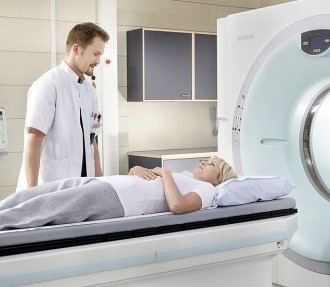Young Finnish company Blueprint Genetics has its sights set on revolutionising genetic testing for inheritable diseases.
Just a few short years ago, Tommi Lehtonen’s job could have been found only in works of science fiction. He is the CEO of Blueprint Genetics, a Finnish company that provides clinical genetic diagnostics for rare diseases.
“We launched our first ten products in June 2013,” says Lehtonen. “Our sales have picked up well, and there are already more than 20 hospitals in several countries sending us diagnostic samples.”
Headed for Slush Helsinki

Startup companies and investors flock to Slush Helsinki each year. Photo courtesy of Slush Helsinki
In the Finnish tradition of close partnerships between corporations and researchers, Blueprint Genetics can trace its beginnings all the way to a famous California institution.
“The roots of the company are in Stanford, where our core technology was originally invented by our chief technology officer. We raised seed funding in spring 2012 from Finnish angel investors and we have gathered an ambitious team of 11 to take hospital genetic diagnostics to the next level.”
One component of their growth strategy was their attendance at Slush Helsinki, the largest conference for startup companies in Northern Europe. The event, held annually in the Finnish capital, attracts investors from all over the world. Participants attend from life sciences companies such as Blueprint Genetics, as well as from sectors including software, hardware, cleantech, information security and gaming.
“We went to Slush to meet investors and network with entrepreneurs and advisors,” Lehtonen says. “We hoped to get into good one-to-one meetings and find contacts that lead to practical collaboration. We have an ambitious expansion plan and we need both the financial resources and talented people to help us execute it.”
Heart disease runs in the family

Accurate DNA analysis can form a tool in doctors’ repertoire to greatly improve the lives of patients and their families. Photo: Blueprint Genetics/iStockPhoto
Just like all the other life science companies at Slush, at the core of Blueprint Genetics’ mission is to help patients with the best tools available.
“Our current diagnostic products concern rare diseases that are often serious and in many cases fatal,” says Lehtonen. “Diagnostics enables clinicians to reach a diagnosis quickly and choose the right treatments for the patient. Quick engagement of the treatment reduces symptoms and can prolong life expectancy significantly. Also, a quick diagnosis relieves the patient from the anxiety of not knowing.”
Tiina Heliö, a cardiologist at Helsinki University Central Hospital, explains why such genetic testing from Blueprint Genetics is important for her patients.
“Cardiomyopathies are often familial,” she says. “In these cases, the accurate DNA diagnosis helps to recognise those family members who need follow-up.”
Heliö emphasises that these new tools can be added to her repertoire to greatly improve the lives of patients and their families.
“Even if there are several cardiomyopathy cases in the same family and it is reasonable to presume that the background might be genetic, the penetrance of the disease genes is variable,” she notes. “This means that without DNA diagnosis, apparently healthy family members should be followed up regularly, even until middle age, in order to detect possible developing cardiomyopathy. In most cases, individuals who are not carriers of the mutation may be released from years of unnecessary restrictions.”
Finnish research community

Studying data: Genetic testing is evolving at a rapid pace and already forms a fast-growing industry in which Finland plays a significant part. Photo: Blueprint Genetics/iStockPhoto
Lehtonen says genetic testing is evolving at a rapid pace and already forms a fast-growing industry. Many factors in its evolution can be traced back to Finland.
“The diagnostics would not be possible without the vast research information available, to which Finland has contributed significantly,” he says. “Finland has a very strong and globally recognised genetics research community, which provides a credible background for us to make international contacts.”
The next step for Blueprint Genetics is to continue their expansion and offer more services for other genetic diseases. They already offer testing for heart diseases, but should soon be able to help other patients, such as those who suffer from kidney diseases.
“We are already beating our revenue targets,” says Lehtonen. “We are excited to launch more products soon that extend our line to other disease categories.”
By David J. Cord, November 2013, updated November 2014








